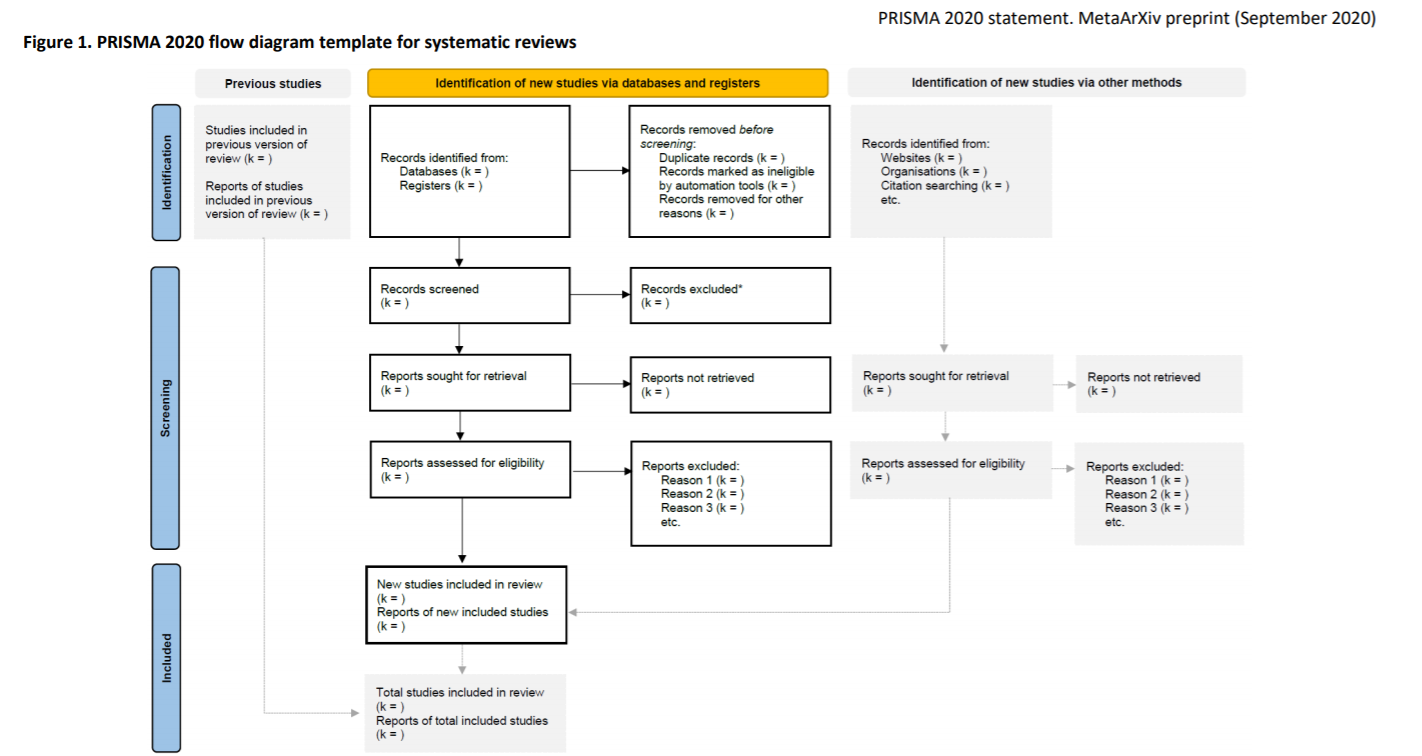Documentation
Reproducibility
Your literature search methods should be transparent and reproducible. The reproducibility of your search strategy makes your work credible and reliable.
Tools like Notepad, Google Docs, Microsoft Word, Microsoft Excel can help you keep a detailed record of your methods and search strategy.
Reporting the search methods
Reporting your search methods helps users to evaluate the validity of your project.
Atkinson, K. M., Koenka, A. C., Sanchez, C. E., Moshontz, H., & Cooper, H. (2015). Reporting standards for literature searches and report inclusion criteria: making research syntheses more transparent and easy to replicate. Research synthesis methods, 6(1), 87-95.
https://www.ncbi.nlm.nih.gov/pubmed/26035472
Rethlefsen ML, Kirtley S, Waffenschmidt S, Ayala AP, Moher D, Page MJ, Koffel JB. PRISMA-S: an extension to the PRISMA Statement for Reporting Literature Searches in Systematic Reviews. Systematic reviews. 2021 Dec;10(1):1-9.
https://systematicreviewsjournal.biomedcentral.com/articles/10.1186/s13643-020-01542-z
Note: There are reporting standards and guidelines for study types (i.e. randomized control trial, case study, observational study, systematic reviews)
PRISMA flow diagram
Page MJ, McKenzie J, Bossuyt P, Boutron I, Hoffmann T, Mulrow Cindy et al. The PRISMA 2020 statement: an updated guideline for reporting systematic reviews 2020. doi:10.31222/osf.io/v7gm2.
The diagram is part of the Preferred Reporting Items for Systematic Reviews and Meta-Analyses (PRISMA) 2020 Statement, a reporting standard for systematic reviews.
The PRISMA flow diagram template is an example of how to report your search results.


